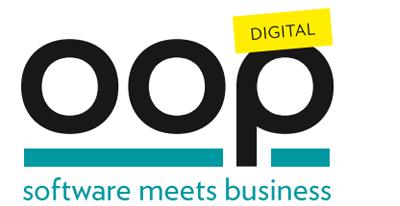Please note:
On this page you will only see the English-language presentations of the conference. You can find all conference sessions, including the German speaking ones, here.
The times given in the conference program of OOP 2023 Digital correspond to Central European Time (CET).
By clicking on "VORTRAG MERKEN" within the lecture descriptions you can arrange your own schedule. You can view your schedule at any time using the icon in the upper right corner.
Thema: Programming Languages
- Montag
06.02. - Mittwoch
08.02. - Donnerstag
09.02.
This highly interactive workshop is all about software architecture - with Spring Boot, the Java microservice framework. Using an example application, we will discuss and try out the following topics in code:
- REST API design
- Hexagonal architecture
- Bean validation
- Single sign-on with Keycloak
- Role-based security
- Optimistic locking with ETags
- OWASP dependency check
- Structured JSON Logging
- Error handling
- Integration tests with Cucumber
- Architecture tests with ArchUnit
- Local deployment…
The cloud has fundamentally changed how we design applications and introduced whole new categories of software-development disasters. With a focus on Java, this talk will introduce some of the new tools, patterns, and best practices for modern distributed application development. It also gives a tour of some of the most painful anti-patterns Holly has seen as a cloud consultant.
Target Audience: Architects, Developers, Strategic Decision Makers
Prerequisites: Basic experience of cloud computing,…
You've heard about this new feature in C++20, Coroutines, but it's the first time you have encountered this term? Then this talk is what you're looking for. We start from the beginning with just "normal" functions. Next, we introduce Coroutines. Using them, we explore the various customization points C++ offers. Another distinction we make is cooperative and preemptive multitasking, opening the door for another beauty of Coroutines, why we don't need locks.
By the end of this talk, you've…
As developers, our job is to deliver working software. With the shift to CI/CD and the move to the cloud, the need to have the right feedback at the right time only increases. There are many ways that testing can help us with that. Not only can testing help us verify our solution and prevent us from breaking things, it can also help us design our software, find flaws in our architecture and come up with better solutions. In this talk I will highlight some of the many ways that testing can help…
In this session I’ll examine some of the things that can go wrong when organisations jump headfirst into micro-service architectures without understanding the potential pitfalls.
I'll explain contract testing from the ground up. You'll learn how it can decouple micro-service dependencies during development, allowing your teams to work effectively. And I'll describe sophisticated, free, open-source tooling that helps integrate contract testing into your software lifecycle, giving you the…
Java applications are widely used and often several years old. You can use these applications in the cloud via lift-and-shift (helps nothing) or you can rewrite the application in cloud-native style and use the advantages of the cloud.
An alternative for existing applications is missing here. It must be possible to go to the cloud and use advantages such as serverless and scale-to-zero WITHOUT having to rewrite the entire application.
I will show what is already working well today and where the…

